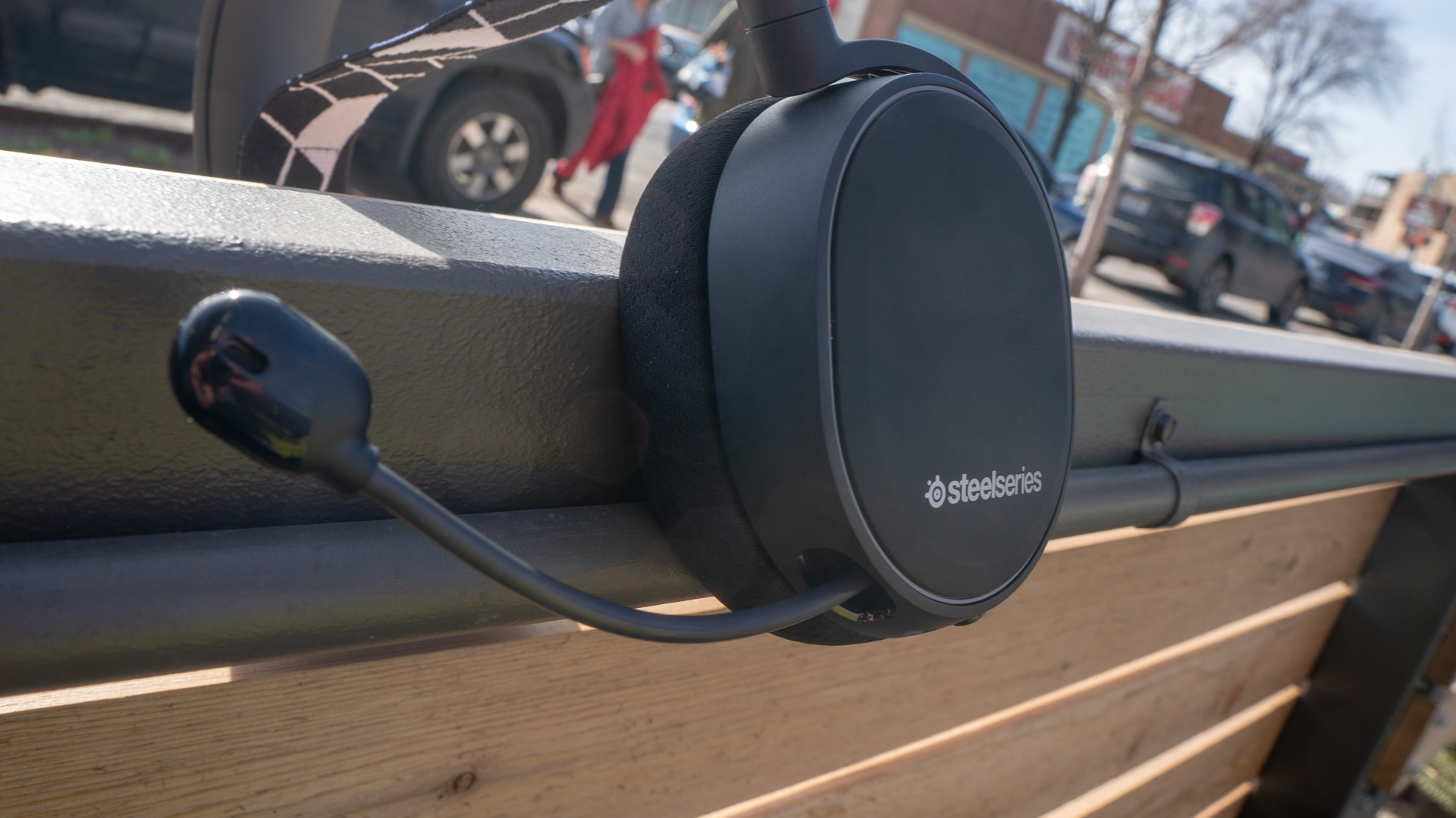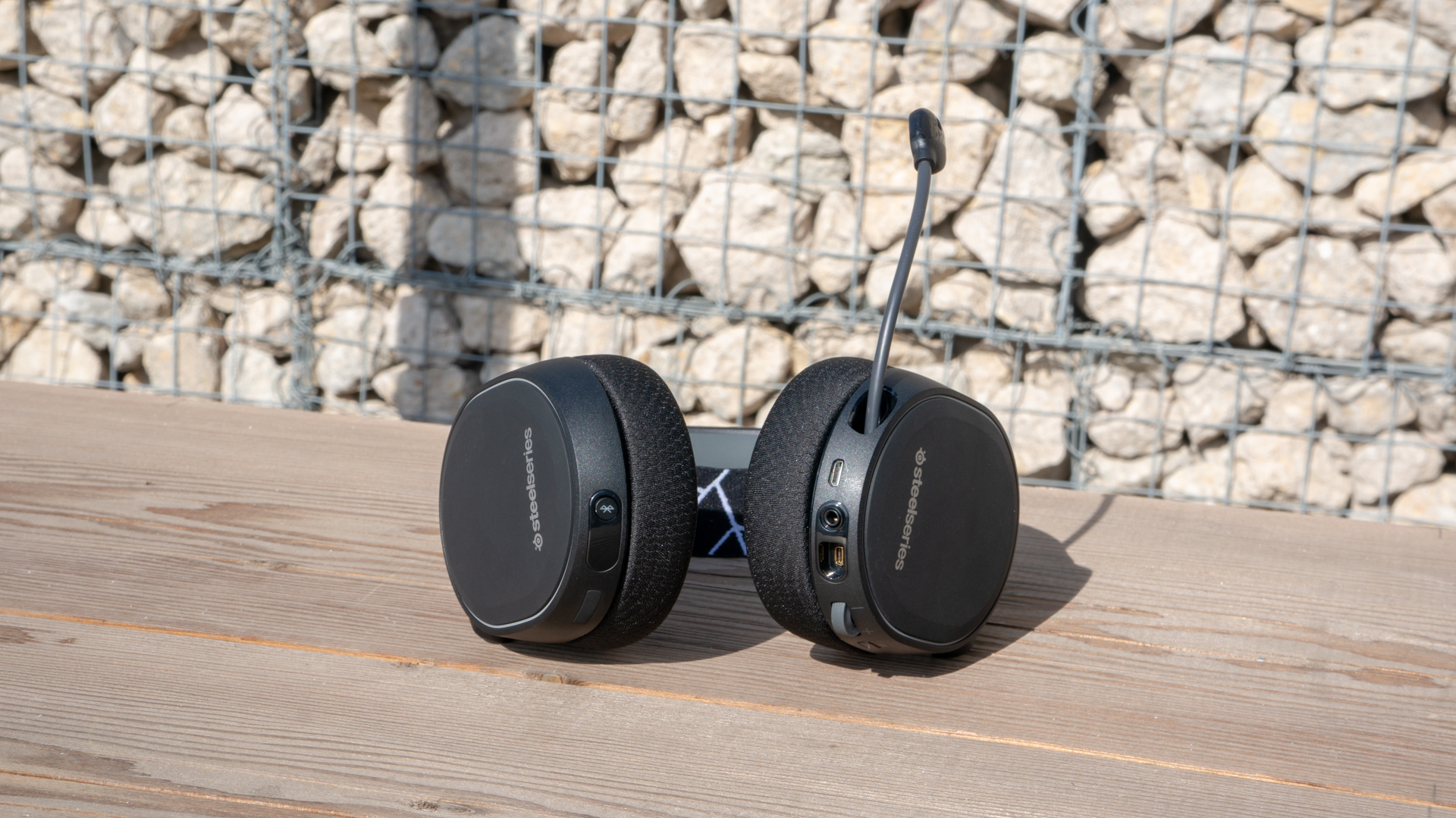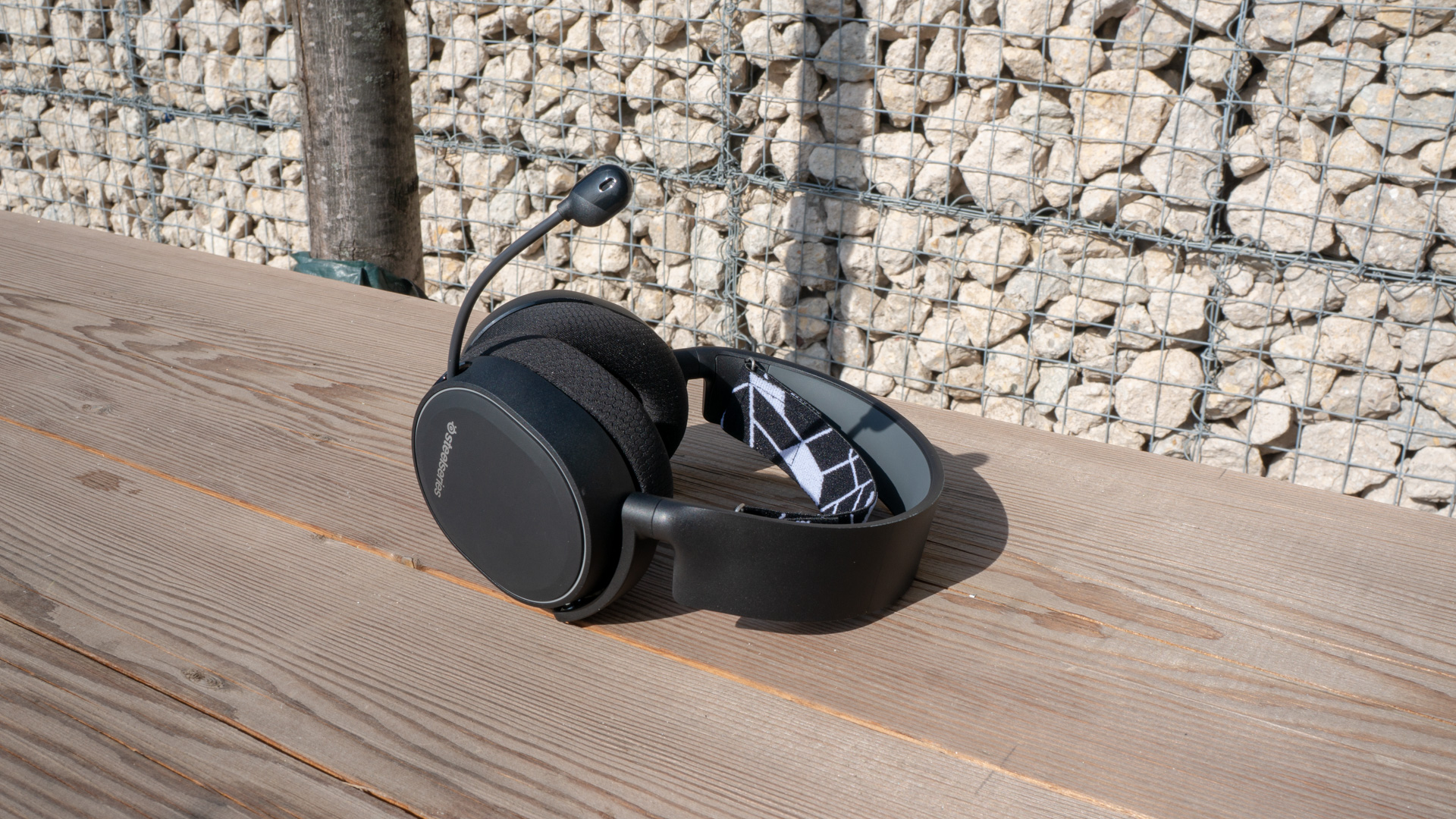TechRadar Verdict
Decent but not perfect comfort, passable audio and nearly unrivaled versatility makes the SteelSeries Arctis 3 Bluetooth an great pick for the right customer.
Pros
- +
Works in almost any situation
- +
Clear microphone pickup
- +
Long-lasting battery even with Bluetooth
Cons
- -
Some build and comfort issues
- -
Proprietary connector
- -
Weak high tones
Why you can trust TechRadar
The SteelSeries Arctis 3 Bluetooth gaming headset tries to be the solution for pretty much every possible situation you may run into while gaming. By using both analog and Bluetooth, the headset can effectively handle the craziest setups including multiplayer on the Nintendo Switch.
The Arctis 3 Bluetooth is compatible with any device that uses the 3.5mm jack, including modern consoles. And, it can connect over Bluetooth 4.1 to smartphones and laptops.
The ability to play both Bluetooth and analog audio at the same time is another huge factor in the SteelSeries Arctis 3’s value proposition. This simplifies voice communications when playing Nintendo Switch games, and will let you play music from your phone while playing on a console. Plus, it can double as an on-the-go Bluetooth device.
At $129 (£134, AU$239), the SteelSeries Arctis 3 Bluetooth is $50 more expensive than its wired sibling. The SteelSeries Arctis 3 Bluetooth’s price also puts it in closer competition with our beloved $149 (£169, AU$) HyperX Cloud Revolver S and SteelSeries’ own similarly designed, 2.4 GHz wireless big brother, the $149 (£169, AU$259) Arctis 7.




Design
The Arctis 3 Bluetooth boasts an understated design. The big ear cups come with a soft touch rubber finish that feels premium. Matte plastic is everywhere, but the very tip of the microphone is made of glossy plastic to add a touch of contrast.
The Arctis 3 Bluetooth headband is a thick, flexible plastic. The earcups attach with metal hinges that allow them to rotate to rest flat on your chest or for storage, and they pivot to automatically adjust to your head and balance out the clamping force. The headset feels a little loose when we shake our head, so these are a no-go for jogging or highly active VR.
Unfortunately, the build doesn’t feel that sturdy. The SteelSeries Arctis 3 flexes to fit bigger heads, but the hinges feel like they may give out with too strong a twist. The ear cups wiggle a bit on the hinges, too. They don’t feel fragile, but not exactly rugged either. Everything just kind of feels more wobbly than it should.
An elastic skiband comfortably spreads out the weight of the headphones across the crown of our head. Steelseries’ AirWeave ear cup material is wonderfully soft and pleasant on the skin, but the Arctis 3 Bluetooth could stand to have a tad more room inside the ear cup. The edge of our ears touched the fabric-covered speaker driver in the headset, and this can grow uncomfortable in no time. However, that’s the only thing we found uncomfortable.

The SteelSeries Arctis 3 is a bit busy with controls and ports. The left ear cup includes a mic mute switch, volume dial, 8-pin audio input connector, micro-USB port for charging and even a 3.5mm audio out jack for sharing your audio with someone else. The retractable microphone is also on the left. The Bluetooth power button is on the right side of the Arctis 3.
The microphone mute switch is a little hard to find at first, and you can’t see it while wearing the headset. But, it pops out while muted, so it’s easy to reach back and physically feel what mode it’s in.
The headset cable is made of a light rubber that doesn’t generate much noise, but a clip would be a welcome addition. The cable can connect at the other end to a 4-pole angled 3.5mm plug or to a splitter with 3.5mm mic and audio jacks, but the propriety 8-pin connector is a nuisance.
The microphone tucks away nicely into the Arctis 3 Bluetooth, but the flexible arm doesn’t take to new positions well. We found ourselves adjusting it a few times to get it in the right position.

Performance
While the microphone doesn’t really like staying in place, it manages to pick up clean audio even from well to the side of our mouth while testing. Teammates never had trouble hearing us while gaming, and no one complained that we sounded like we were inside a bag of potato chips (trust us, we’ve heard this one before).
The noise-to-signal ratio is good, with basically no noise that we could notice. Wired audio quality is also mostly stellar. Bass comes through loud and clear on Asteroid Galaxy Tour’s Out of Frequency. Mids are similarly fine. Sounds in the higher registers feel a little flat, such as cymbals. Generally, the audio is loud and clear, and we felt plenty immersed in games. We never struggle with external noise, as the headset even drowns out drilling at a climbing gym.
Bluetooth audio is a bit flat, with the compression making itself readily apparent. Is it awful? We did experience one rough quality drop, but generally it’s OK.
However, busy music like Of Montreal gets muddy. And, the possibility for lag paired with reduced audio fidelity are a bad match for competitive online gaming. Bluetooth pairing is somewhat tedious on this headset, but that’s almost always the case for Bluetooth devices. The battery boasts a 28-hour lifespan for active listening, and we find it to last plenty long.
The simultaneous Bluetooth and analog audio works without a hitch. We can easily connect to Discord via Bluetooth on our phone while playing audio from a console, so for playing games on the Nintendo Switch and chatting with teammates without a mess of wires, the Arctis 3 Bluetooth is a simple and effective solution.
Using SteelSeries Engine 3, the Arctis 3 Bluetooth supports virtual surround sound, but we aren’t blown away by it, nor the steps necessary to get it working.

Final verdict
The SteelSeries Arctis 3 Bluetooth is a bit of a Swiss Army Knife when it comes to who it’s for. It’s not the most portable pair of gaming headphones, but it’s plenty more portable than lots of other gaming headsets, plus Bluetooth and a long-lasting battery make it that much more friendly on the go.
It’s not the most rugged or comfortable headset in the world, but it’s certainly not bad, either. The unique combination of Bluetooth and analog audio also offers something other headphones don’t. And, for the right person, all these little quirks can add up to make the Arctis 3 Bluetooth headset worth your time.
For someone who wants to just have one pair of headphones that will do the job in just about every situation (even some really crazy ones), the Arctis 3 Bluetooth is here. Versatility is the name of the game, and that’s how this headset justifies its high price.
Over the last several years, Mark has been tasked as a writer, an editor, and a manager, interacting with published content from all angles. He is intimately familiar with the editorial process from the inception of an article idea, through the iterative process, past publishing, and down the road into performance analysis.

